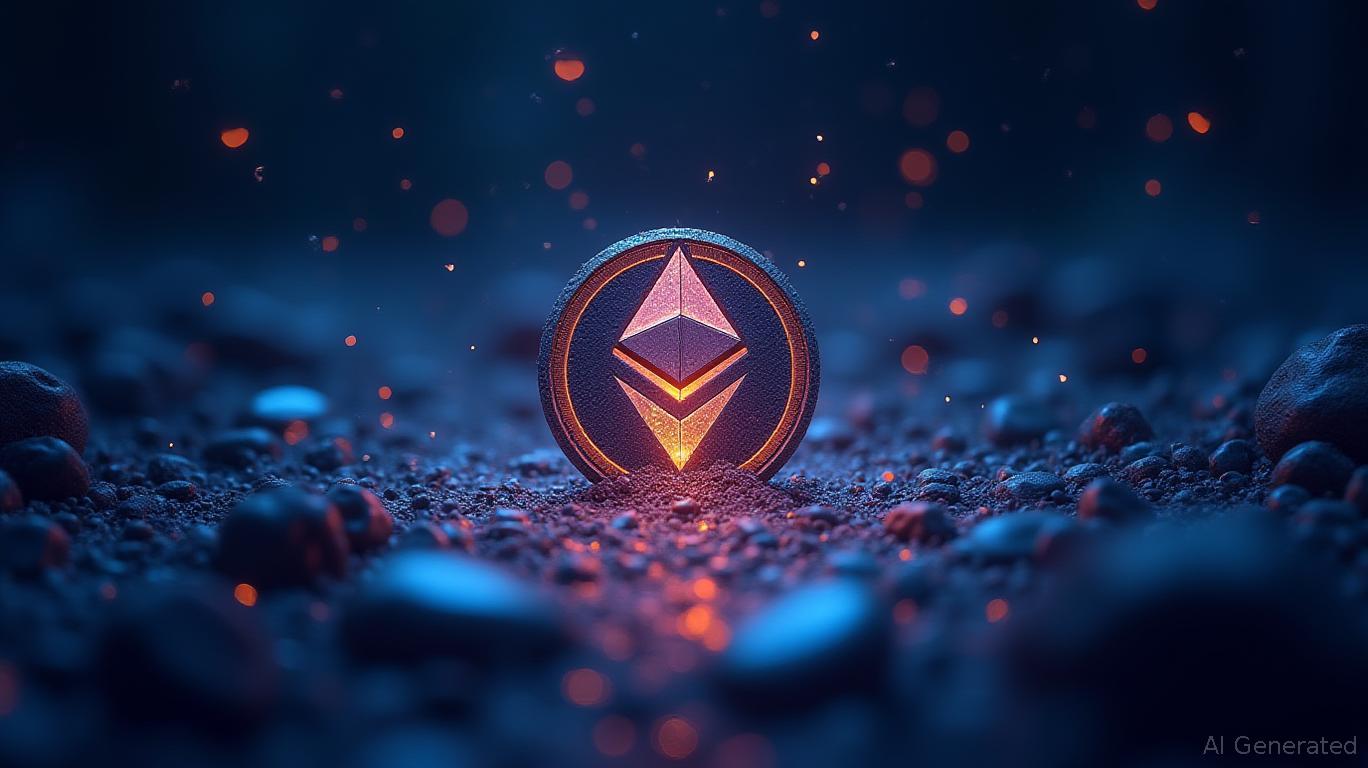Solana News Today: Solana's 150ms Finality Revolution: Could It Outrace Ethereum?
- Solana's validator community nears approval of Alpenglow upgrade, slashing block finality to 150ms via Votor and Rotor components. - Upgrade enables 107,540 TPS (vs. Ethereum's 15-45 TPS) and introduces decentralized economic incentives to reduce centralization risks. - 99% voter support with 33% quorum met, positioning Solana to challenge Ethereum in DeFi, gaming, and institutional finance sectors. - Critics warn VAT model may favor large validators, but network's 20+20 resilience model and $8.6B DeFi T
Solana’s validator community is poised to approve what could be the most transformative upgrade in the blockchain’s history. The Alpenglow consensus overhaul, also known as SIMD-0326, promises to reduce block finality times from 12.8 seconds to an astonishing 150 milliseconds, placing Solana at the forefront of ultra-fast blockchain networks [1]. If passed, the upgrade would not only increase Solana’s competitiveness against rivals like Ethereum but also establish new standards for high-performance blockchain applications in DeFi, gaming, and real-time finance. Over 99% of votes cast so far have supported the proposal, with the quorum threshold of 33% already reached [3].
At the heart of the Alpenglow upgrade is a radical reimagining of Solana’s consensus mechanism. The proposal introduces two new components—Votor and Rotor—that replace the current Proof-of-History (PoH) and TowerBFT systems [4]. Votor will streamline the validation process by moving most of the work off-chain, reducing finality to 150 milliseconds. Rotor, on the other hand, will optimize block propagation by cutting down redundant data transfers, ensuring faster and more uniform consensus across the network [1]. These changes are expected to allow Solana to process up to 107,540 transactions per second (TPS), a stark contrast to Ethereum’s current 15–45 TPS [4].
The implications for DeFi and institutional adoption are profound. Solana’s “20+20” resilience model ensures the network remains operational even if 20% of validators are adversarial and another 20% are offline [1]. This level of fault tolerance is a strong selling point for enterprise-grade applications, especially in sectors that require high availability and real-time processing. The network’s ability to maintain performance under adversarial conditions has already attracted partnerships with major institutions, including BlackRock and SpaceX [4].
Alpenglow also introduces a new economic model for validators that could significantly alter the network’s governance structure. The upgrade removes fixed voting costs, which historically favored larger stakeholders, and introduces a proportional reward system based on participation. This shift aims to foster a more inclusive validator ecosystem and reduce centralization risks [4]. Critics, however, argue that the new Validator Admission Ticket (VAT) model may create barriers for smaller validators, potentially concentrating power among larger operators [5].
Despite these risks, the upgrade is expected to drive increased adoption across the board. Analysts project that Solana could process 100 million daily transactions by year-end, a threshold that would solidify its status as a top-tier Layer-1 competitor [7]. The network’s Total Value Locked (TVL) in DeFi reached $8.6 billion in Q2 2025, with real-world asset (RWA) integration growing to $418 million [4]. These figures highlight Solana’s ability to attract both retail and institutional capital, particularly as platforms like Robinhood and Upexi integrate its infrastructure for micro-futures and treasury allocations [6].
Finality is a critical factor in blockchain performance, particularly in sectors like gaming and institutional trading, where speed and reliability are paramount. Solana’s ability to finalize transactions in less than half a second offers a compelling edge over Ethereum, which currently takes 12–13 seconds for initial confirmation and up to 12 minutes for finality. This speed advantage translates into lower fees and faster execution times, which can attract high-frequency traders and institutional investors [2]. While Ethereum is pursuing a modular approach to scalability, Solana is doubling down on raw performance, which could carve out a unique niche in the blockchain market.
The success of Alpenglow will depend on both the technical execution and the network’s ability to maintain decentralization while scaling. Validator participation is currently at 11.8%, with more than 88% of eligible validators yet to vote [5]. If the current trajectory holds, the proposal is likely to pass before the voting period ends. However, challenges remain, including potential security risks and the need to ensure that the network’s resilience model holds up under real-world conditions.
Solana’s Alpenglow upgrade represents a bold step forward in blockchain innovation. By reducing finality times to 150 milliseconds and introducing a resilient, decentralized consensus model, the network is positioning itself as a serious contender in the high-performance blockchain space. While centralization risks and technical challenges persist, the upgrade has the potential to redefine how developers, traders, and enterprises interact with blockchain technology.
Source:
[1] Alpenglow Vote Could Redefine Solana's Protocol (https://www.bitget.com/news/detail/12560604939591)

Disclaimer: The content of this article solely reflects the author's opinion and does not represent the platform in any capacity. This article is not intended to serve as a reference for making investment decisions.
You may also like
Obita completes over $10 million angel round financing to accelerate the deployment of new infrastructure for stablecoin cross-border payments
This round of funding will focus on core system development, compliance construction, and market expansion, accelerating the layout of a global stablecoin cross-border payment network.

Don't underestimate Trump's determination: How will the US "cut interest rates"?
The market generally expects that a Federal Reserve rate cut will lower short-term interest rates, while long-term yields will face upward pressure due to inflation concerns.

Asia Pioneers Tokenized Islamic Finance Integration

Crypto Markets Remain Resilient Amid U.S. Stock Market Labor Day Closure
